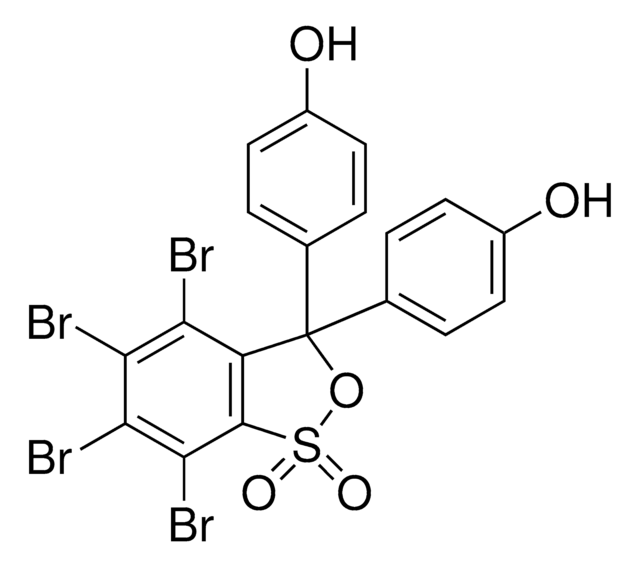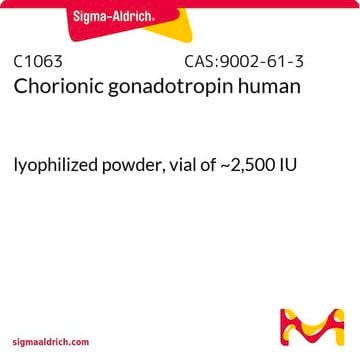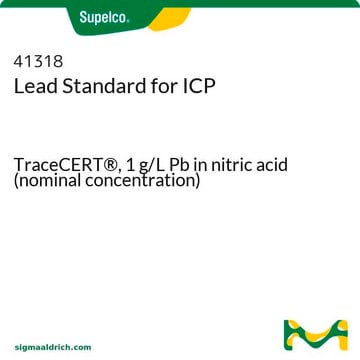199311
Tetrabromophenol Blue
Dye content 75 %
Synonym(s):
3,3′,3″,4,5,5′,5″,6-Octabromophenolsulfonphthalein
About This Item
Recommended Products
Assay
≥75.0% (HPLC)
form
powder
composition
Dye content, 75%
mp
204 °C (dec.) (lit.)
λmax
388 nm (2nd)
605 nm
ε (extinction coefficient)
≥55000 at 606-616 nm in ethanol and water
application(s)
diagnostic assay manufacturing
hematology
histology
storage temp.
room temp
SMILES string
Oc1c(Br)cc(cc1Br)C2(OS(=O)(=O)c3c(Br)c(Br)c(Br)c(Br)c23)c4cc(Br)c(O)c(Br)c4
InChI
1S/C19H6Br8O5S/c20-7-1-5(2-8(21)16(7)28)19(6-3-9(22)17(29)10(23)4-6)11-12(24)13(25)14(26)15(27)18(11)33(30,31)32-19/h1-4,28-29H
InChI key
QPMIVFWZGPTDPN-UHFFFAOYSA-N
Looking for similar products? Visit Product Comparison Guide
Biochem/physiol Actions
Storage Class Code
11 - Combustible Solids
WGK
WGK 3
Flash Point(F)
Not applicable
Flash Point(C)
Not applicable
Personal Protective Equipment
Certificates of Analysis (COA)
Search for Certificates of Analysis (COA) by entering the products Lot/Batch Number. Lot and Batch Numbers can be found on a product’s label following the words ‘Lot’ or ‘Batch’.
Already Own This Product?
Find documentation for the products that you have recently purchased in the Document Library.
Customers Also Viewed
Our team of scientists has experience in all areas of research including Life Science, Material Science, Chemical Synthesis, Chromatography, Analytical and many others.
Contact Technical Service
















